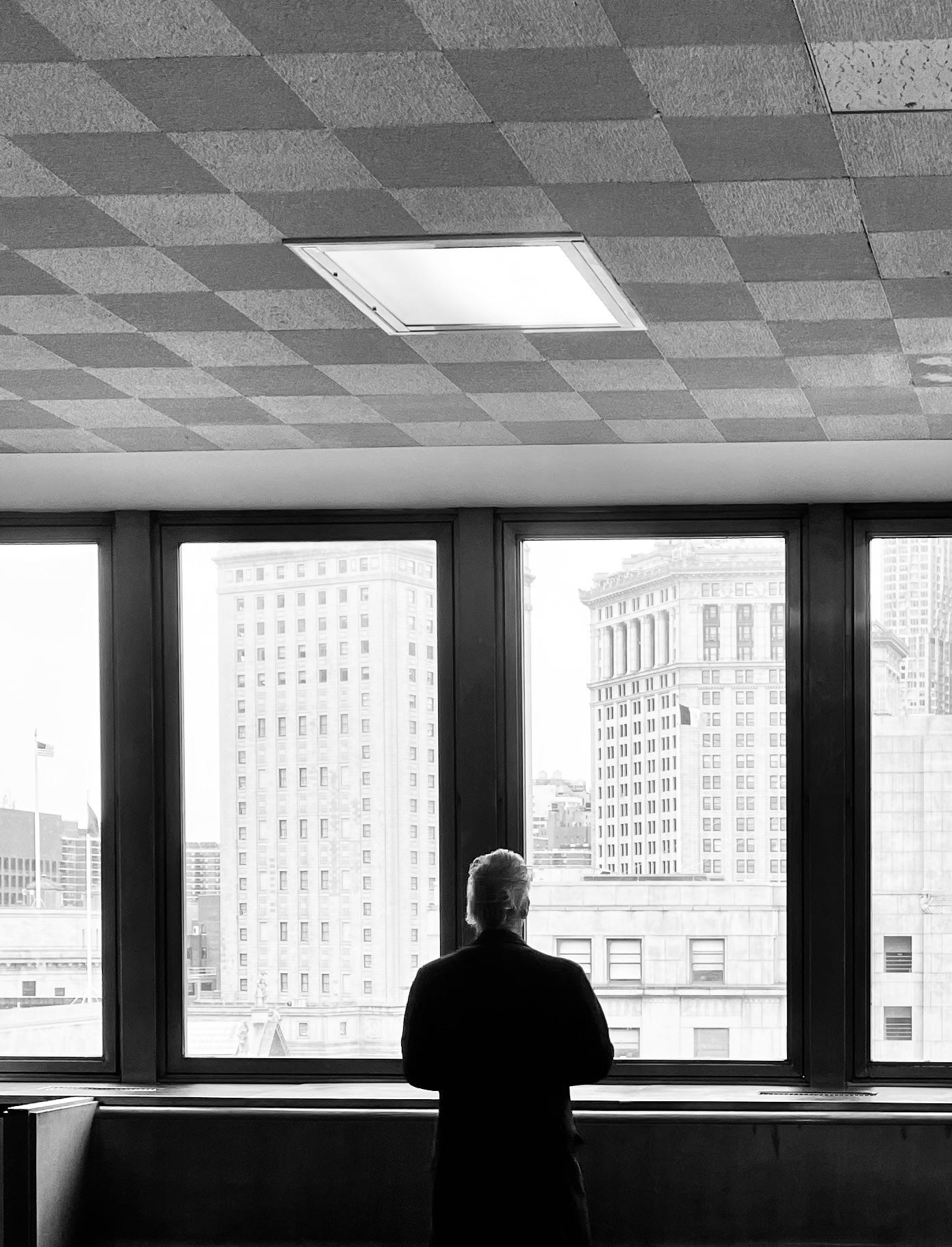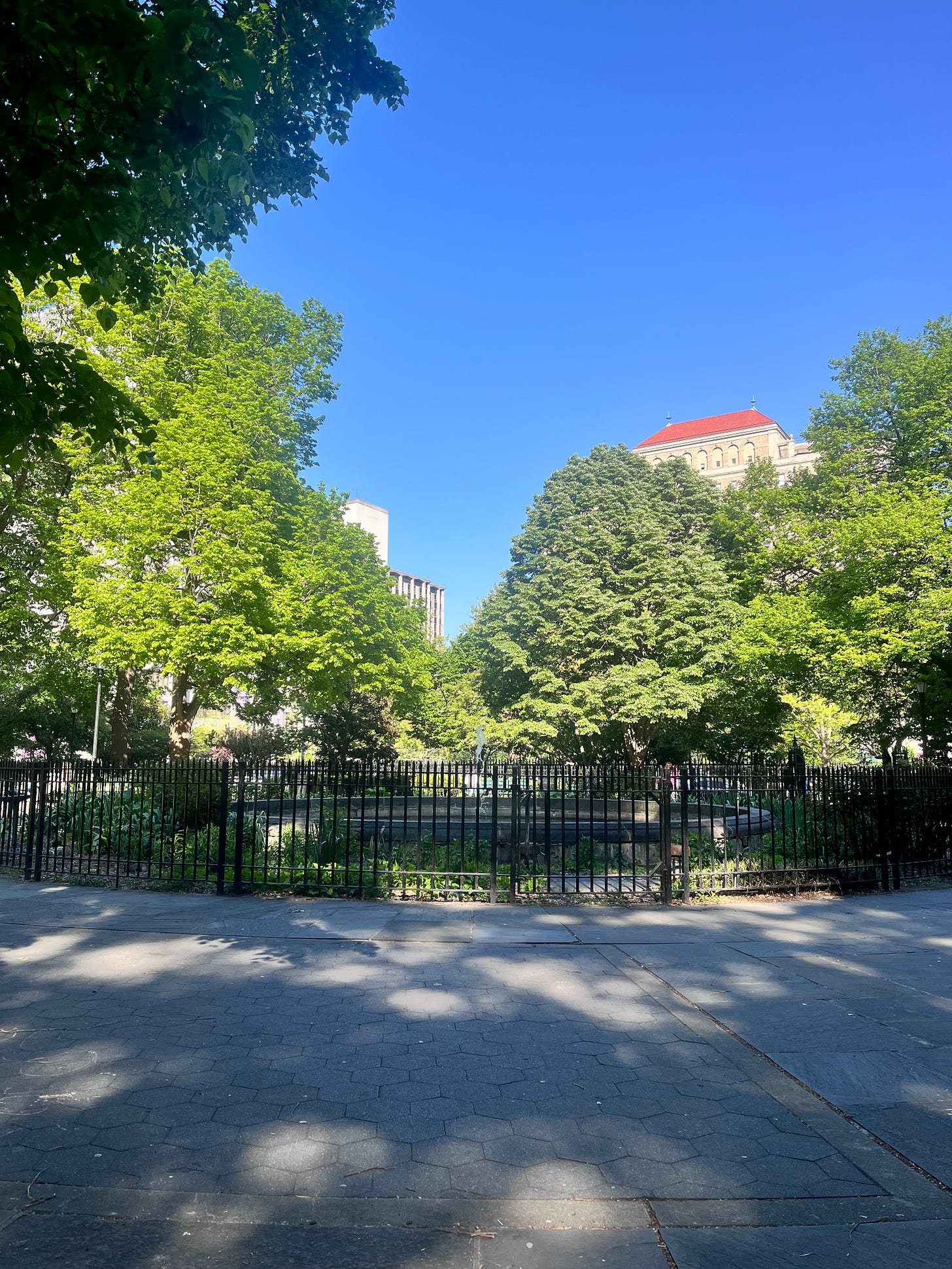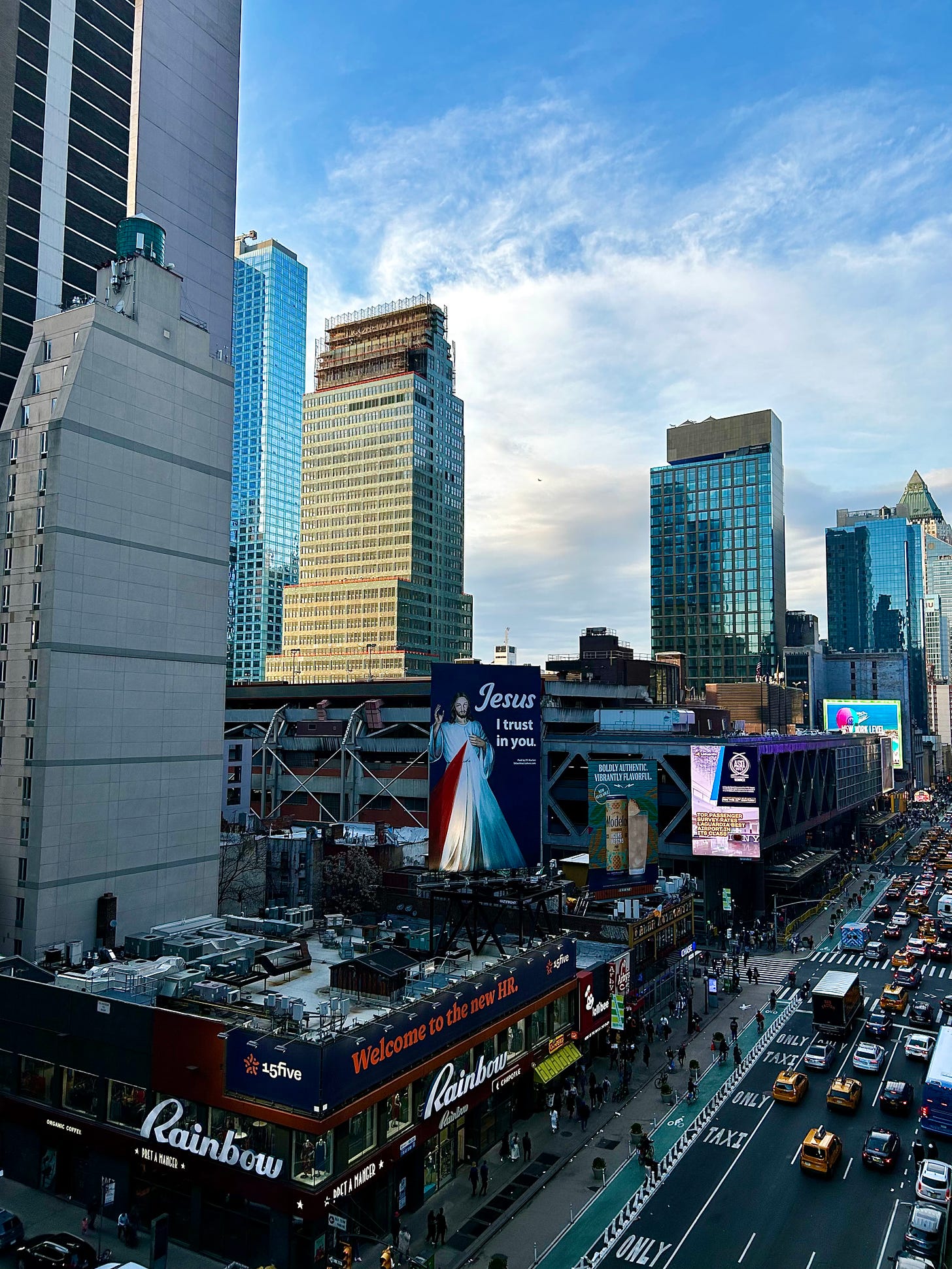Closer Than Ever And So Far Away
New York offers no lofty solitude; just a city of lost, broken, beautiful souls.
Last Thursday kicked my ass until it was a brand new shape.
It started when I left an appointment on 16th Street and sat down to collect my thoughts in Stuyvesant Square Park. The weather was spectacularly beautiful, with the kind of warm redolent light one associates with places like San Diego. There were birds and squirrels, and yes, a screeching Wagnerian opera of sirens.
While I closed my eyes and turned my face up toward the sun, people were hurtling past in ambulances, fighting for their lives.
Those were hardly the only calamities that day.
A woman sat down two benches to the left of me, next to a man holding a guitar. She was thin, in her fifties, wearing a sleeveless blouse and a pair of linen shorts. Guitar Guy had a largish, weathered face and graying ponytail. I’d seen him during previous sojourns to the park, another one of New York City’s “colorful characters” who believes he’s doing the world a service by belting out folk songs and being character-y.
They knew each other, these two. Not well, but casually, and within minutes she tells him about her three kids, who are all in college: two daughters and a younger son. “He’s probably gay,” she says. “But he won’t come out to us. I don’t know why. It’s not like anybody has a problem with it.”
Guitar Guy pontificates on “kids these days” and suggests her son might be having a hard time admitting it to himself, let alone his family, and that’s when the woman confesses that she just found a suicide note on her son’s iPad.
Yes, these words were said in public with no attempt at concealment, but they were not intended for my ears. I was in involuntary receipt of them. I was shaken. Horrified. As a mother myself who has been through some Joseph Conradian Heart of Darkness moments with my own kids, I knew she was in trouble.
Walking away from the bench was probably the polite thing to do, but I couldn’t. What was she going to do about this? And what was she doing out here in the park bumming cigarettes from the Michael Bolton wannabe instead of circling the wagons at home?
It is my amateur opinion that people in New York often engage in conversations like this one with strangers. New York is a terribly lonely city, for all that we’re shoulder to shoulder with one another. This woman struck me as not just lonely but alone, a fact that was underscored by two things: Guitar Guy asking her if she’d called a friend for help (her reply: “I called a woman I work with who has a son who’s my son’s age.”) And then a curious omission: She mentioned her husband only once.
“I don’t think he’s serious,” she kept saying about her suicidal son. “And I don’t believe in therapy.”
What I wanted to say, of course, is hell, yes, you should take this seriously! Are you insane? And who gives a f**k what you believe, if the kid is willing to go to therapy, send him. There was money there, for therapy and probably a lot of things. Money emits its own odor. I could smell it on her. But then, maybe money was part of the problem.
Guitar Hero held forth on the subject of Existentialism and how she should try to turn her son onto it. Like Existentialism was going to help a gay kid struggling with his sexuality and possibly suicidal as a result.
Puffing away on her cigarette, the woman listened, despite her pain, maybe because of it. Everything in this city is transactional, including the amount of time we bargain away just to be heard.
A few minutes later, I left the park feeling extremely heavy of heart. These things hit me personally. It’s the dark side of my extreme—and might I add wholly unwilling—empathy. In me, this empathy is a default setting, not a virtue. It doesn’t make me a better person; merely one who is forced to feel things she would rather not feel. As I walked away, I crumbled beneath the grief and loneliness of this unknown boy and his mother who loved him so imperfectly.
All mothers love imperfectly, by the way. It’s because we’re humans first and mothers second.
#
On 14th Street, I turned left, heading back toward our apartment in the East Village. Where the subway erupts on Avenue B, amid the vomit and the mayhem and the unsavory smells, there’s a bus stop. I sat on the bench, hoping to return a few text messages.
A woman in her late sixties plopped down next to me. She had a rollator walker with a mesh shopping basket in front brimming with groceries. She started chatting with me, first about the exceptional weather, and then about the out-of-commission bus that had stalled right in front of us.
She takes out a bag of cheese puffs and struggles to get it open before handing me the bag. “Can you do it? It’s like they welded the damn thing shut.”
We talk. There are commonalities. She used to work for a publisher producing textbooks and lived in Galveston. I mention having lived in Houston. “Oh, I love Houston,” she says. “People there are so friendly.”
Same as Guitar Guy, she has a “kids these days” hot take, too. “They’re rude and unsocialized,” she tells me. “I had to remind this young man on the bus the other day to give his seat to a woman with a cane. You should have seen the look he gave me.”
I’ve seen the behavior as well, young people who are so caught up on their phones, they don’t realize they’re sprawling over an entire seat. John finds it appalling. I find it typical of children. Youth is inherently selfish. I don’t hold it against them.
As the woman speaks, I find myself enjoying her intelligence and—dare I say it?—her refreshing sanity. Finally, here is someone who is bright, articulate, literate, someone who understands my obscure cultural references and annoyingly pedantic writer’s vocabulary. Here’s someone who’s lived life.
For a moment, the world seemed a bit rosier to me, less Joseph Conrad, more Philip Roth.
Then she tells me she’s getting married.
“Congratulations,” I say. “Where did you meet?”
“Online,” she says. “We’re getting married as soon as he returns from Africa.”
“Does he visit you here in New York City?”
“Oh, we haven’t met face-to-face yet, but we will.”
At that moment, I remembered that all of us, no matter how bright, how educated, how schooled we are in the ways of the world, are drowning in a sea of loneliness. Drowning people do desperate things. They flail. They grab onto the nearest piece of wood, whether a floating spar or a cross. They’re getting married because they want to believe they’re getting married.
Hope is a candle in the window on a long dark night. For some, hope is their only affirming flame.
Sick at heart, I relocated to a park bench near our apartment only to hear the guy sitting next to me tell a friend he’s almost $20,000 behind on his rent.
At this point, the lovely weather held no charms for me. I went home and lay on the couch, wondering if I could ever summon the courage to set foot outside again.
#
I woke an hour later to the sound of sobbing. A man across the street was pacing and crying. Someone—his friend, perhaps—had OD’d. His friend was lying in the trash, and his lips were blue. An ambulance pulled up about the same time a woman wearing surgical scrubs came across the sidewalk. She took one look at the dying man, and told the paramedics, “You’d better get the Narcan.”
My tears were stupid and pointless. They changed nothing. But it was all too much. What had happened in this man’s life that compelled him to jam a needle into his arm?
The woman whose son was planning to kill himself, the woman at the bus stop who had deluded herself into believing she was getting married, and this man who had just OD’d had one thing in common: They were parched, dying, lonely. Only the slimmest of variables separated me from them.
Is it the pandemic? Economic despair? A world that no longer has any place for us? I don’t know. But for someone with even half my sensitivity, it is obvious that we are in crisis. It may not look like it from the artificial distance created by our cars, our screens, our mind-numbing quotidian tasks. But it’s there. And it’s loud. And for those of us in the trenches, it’s overwhelming.
To tell you the truth, I’m not sure how I’m going to handle it. If you’re waiting to find out what happens, I’m waiting to find out, too. But suggesting I “toughen up” is akin to asking someone in a wheelchair to get up and walk.
What is it about this city that brings us face to face with our own personal Waterloos?
Copyright © 2024 Stacey Eskelin







I suppose the problem with living in a city like New York is that everything is compressed and forced at you through a fire hose. If your someone with a shred of empathy, there's no time to process what you see and experience because it comes at you hard, fast, and in a never-ending stream. I suppose that's how people become hardened and callous. They start out like you and over time grow overwhelmed and unable to process what's being thrown at them.
I don't see you changing like that, though. You don't seem like the sort of person who would grow a hard exterior and then let it sink in and consume you.
There were (in 1958) eight million stories in the naked city. New York. But in any case that is a vast undercount in the vast megalopolises of the world. Down the road from our Italian frazione, a small city of sixteen thousand. So, there's another sixteen thousand stories there. Another 80 or so here in our village. What we don't have here is the Wagnerian siren opera which, to paraphrase Dylan Thomas, rehearses heat upon a raw-edged nerve. Anyway, Stacey, the variable that separates you (at least until the day you find yourself on a park bench talking to a stranger about some horror, some dream, some persecution, some regret, some remembered love) is the transcendent power of writing, writing well. It keeps one sane.